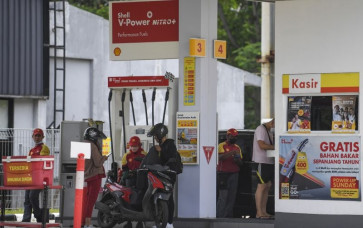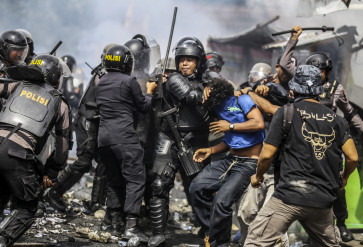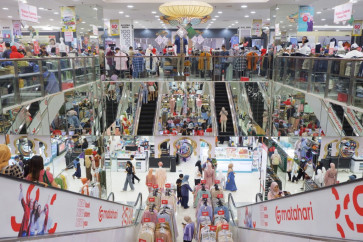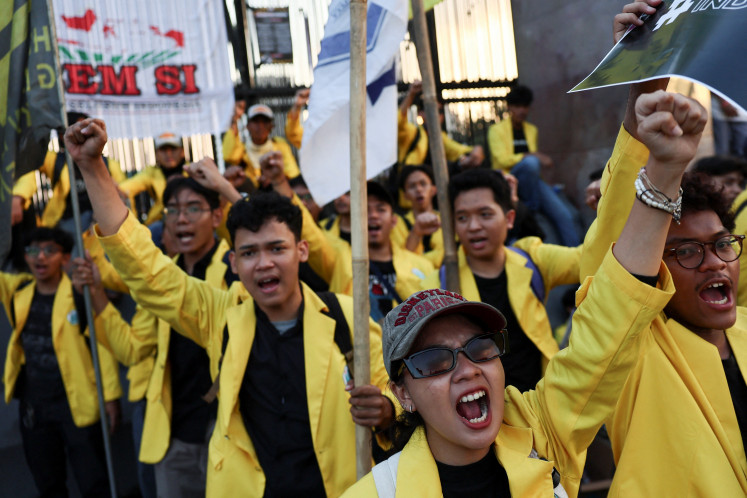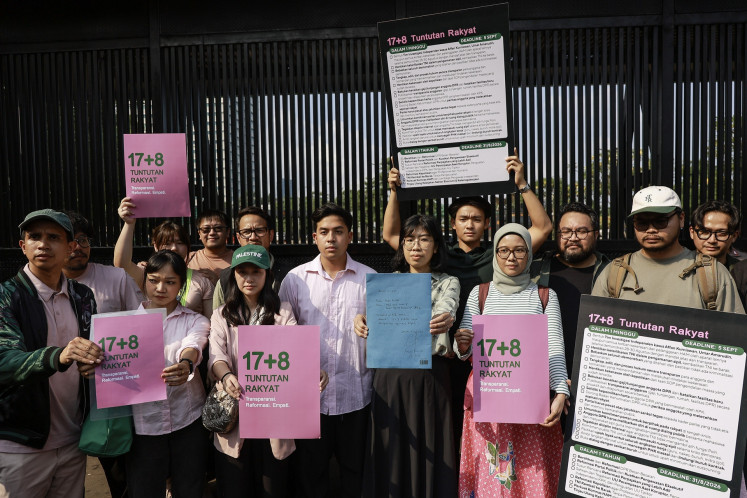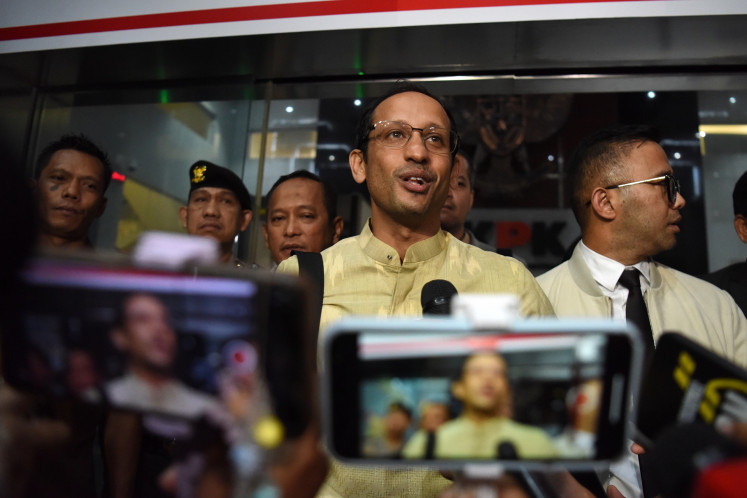Popular Reads
Top Results
Can't find what you're looking for?
View all search resultsPopular Reads
Top Results
Can't find what you're looking for?
View all search resultsReligious mapping, dialogue needed to end spats: Analysts
Packing up: Two members of Pondok Timur Indah HKBP church congregation stack plastic chairs after a Sunday Services on Feb
Change text size
Gift Premium Articles
to Anyone
P
span class="caption" style="width: 398px;">Packing up: Two members of Pondok Timur Indah HKBP church congregation stack plastic chairs after a Sunday Services on Feb. 7 while hundreds of residents of Pondok Timur Indah housing complex protested. JP/R. Berto Wedhatama
Rusli (not his real name), 38, was in a quandary when local clerics recently asked him and other residents to sign a petition against the building of the Filadelfia Huria Kristen Batak Protestan (HKBP) church in their neighborhood in Jejalen Jaya.
“The clerics said that if we didn’t sign, they wouldn’t recite prayers at our funerals,” says the self-professed moderate Muslim.
“I insisted on not signing it, but most of my neighbors were cowed by the threat.”
With local clerics still playing a pivotal leadership role in rural parts of Bekasi, people in the Muslim-majority region are easily dragged into conflicts sparked by religious tensions.
The spat between the HKBP and the Jejalen Jaya residents only escalated once Muslim clerics in the subdistrict began inciting opposition to the construction of the church.
“All Muslim clerics in this subdistrict have agreed the construction of the church must desist immediately,” says protest leader Nesan.
Bekasi ‘45 Islamic University sociologist Andi Sopandi points out such faith-fomented conflicts are to be expected.
Such disputes, he says, occur frequently in developing rural or suburban areas across the country, where the influx of newcomers with a more diverse background has grated on traditionally more homogeneous communities.
“Locals and newcomers get along well only if they share similar basic values, and for most Indonesians, that would be religion,” says Andi, who advised former vice president Jusuf Kalla during the latter’s mediation to end the deadly interreligious clashes in Poso, Central Sulawesi.
Given the situation, he goes on, the establishment of an interfaith communication forum alone is never enough.
Andi believes it is paramount for all regional administrations in the country, including in Bekasi, to produce a map, updated each year, that shows the spread of religious clusters in the area.
“The map shouldn’t just list the populations of each religion, but should also point out their homes and nearest houses of worship,” he says.
“Using such a map, the local administration can work with its Interfaith Communication Forum to allow for houses of worship to be established where the population of any particular religious group is high.”
The population of Bekasi regency increases by an average 1.8 percent a year, with a third of residents living in built-up urban areas.
However, almost 50 percent of residents live below the poverty line, earning less than Rp 200,000 (US$21.60) a month — far less than the regency-stipulated minimum wage of Rp 1.2 million.
“It’s ironic, considering we have more than 4,000 big companies doing business here,” says Deputy Regent Darip Mulyana.
Paramadina University Islamic scholar Ihsan Ali-Fauzi says local disputes over the establishments of churches can be nipped in the bud if the government-sponsored interfaith forums take the initiative of holding dialogues with all stakeholders.
Under a 2006 joint ministerial decree, the establishment of a house of worship must have the approval of all residents living near the proposed site, as well as a nod from both the local religious affairs office and the interfaith communication forum.
“What concerns me is that many of the forums have failed to nurture close ties with institutions such as the police and local administrations,” Ihsan says.
“These forums aren’t playing a significant intermediary role, which is especially needed by non-Muslim congregations.”
Trisno Susanto, from the NGO Interfaith Dialogue Society (Madia), says implementing the ministerial decree has run into many obstacles in the field.
“During the recruitment of forum members, for instance, the local administration tends to pick people from government institutions rather than activists with many years of experience in interfaith issues,” he says.
Trisno adds the rule on the number of signatures needed on a petition to apply for a permit to build a house of worship is useless, with the local interfaith communication forum or the local administration often rejecting the application if even the slightest objection is raised — particularly if those objecting are Muslims.
“That’s why I always urge those facing such problems when trying to build a house of worship to take the case to court,” he says.


